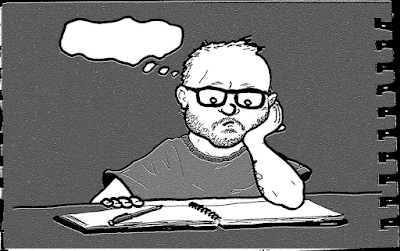Writer's block is a common obstacle faced by many writers, both
professional and amateur. It can be frustrating and demotivating, causing
delays in completing projects and hindering creative expression. However, with
the right strategies and mindset, you can overcome writer's block and tap into
your creative potential. In this article, we will explore effective techniques
and practical tips to help you conquer writer's block and unleash your writing
abilities.
Understanding Writer's Block
Before diving into solutions, it's crucial to understand the nature of
writer's block. Recognizing its causes can provide valuable insights into
overcoming this creative hurdle.
Defining Writer's Block
Writer's block refers to a state of mind where a writer experiences a
significant difficulty in generating new ideas, finding inspiration, or putting
thoughts into words.
Common Causes of Writer's Block
Perfectionism
The pursuit of perfection can create self-imposed pressure, leading to a creative blockage.
Fear of Failure
Anxiety and self-doubt can hamper the creative process, making it challenging to start or continue writing.
Lack of Inspiration
Exhaustion, burnout, or a temporary lack of ideas can impede the flow of creativity.
Overwhelm
Feeling overwhelmed by the magnitude of a writing task can
hinder progress and lead to stagnation.
Overcoming Writer's Block
Now that we have a better understanding of writer's block, let's
explore practical strategies to overcome it and reignite your creative spark.
Freewriting
Engage in freewriting exercises by setting a timer and writing
continuously, without worrying about grammar, coherence, or quality. This helps
bypass your inner critic, allowing ideas to flow more freely.
Create a Writing Routine
Establish a consistent writing routine that aligns with your natural
creative rhythms. Set aside dedicated time each day or week for writing, making
it a habit rather than relying solely on inspiration.
Break It Down
Divide your writing project into smaller, manageable tasks. This
approach alleviates the feeling of overwhelm and provides a sense of progress
as you complete each task, boosting your motivation.
Change Your Environment
If you're feeling stuck, change your physical environment. Explore new
writing locations, such as a coffee shop, park, or library, to stimulate fresh
ideas and break the monotony.
Take Breaks and Practice Self-Care
Regularly schedule breaks during your writing sessions. Engage in
activities that rejuvenate your mind, such as exercise, meditation, reading, or
spending time in nature. Prioritize self-care to nurture your overall
well-being.
Embrace Imperfection
Shift your focus from perfectionism to the act of creation itself.
Accept that the first draft doesn't have to be flawless and allow yourself the
freedom to make revisions later. Embracing imperfection reduces the pressure
and encourages a more fluid writing process.
Seek Inspiration
Expose yourself to different sources of inspiration. Read books, watch
movies, listen to music, visit art galleries, or engage in conversations with
diverse individuals. Drawing inspiration from various mediums can spark new
ideas and rekindle your creative flame.
Cultivating a
Writer's Mindset
In addition to the strategies mentioned above, developing a positive
writer's mindset is crucial for overcoming writer's block and fostering
long-term creative growth.
Adopt a Growth
Mindset
Embrace the belief that creativity is a skill that can be developed
through practice and perseverance. See setbacks as learning opportunities and
challenges as stepping stones to improvement.
Silence Your Inner Critic
Acknowledge the critical voice within you but learn to separate it
from the act of writing. Challenge negative self-talk by
reminding yourself that creativity is subjective, and every writer
faces challenges along the way. Replace self-criticism with self-compassion and
celebrate your progress.
Practice Mindfulness
Engage in mindfulness exercises to quiet the mind and enhance focus.
Techniques such as deep breathing, meditation, or mindful walks can help
alleviate stress and create a conducive environment for creativity.
Surround Yourself with Supportive Writers
Join writing groups or communities where you can connect with
like-minded individuals who understand the challenges of the creative process.
Sharing experiences, receiving feedback, and supporting fellow writers can
boost your morale and provide valuable insights.
Set Realistic
Goals
Establish realistic and achievable writing goals. Break them down into
smaller milestones and celebrate each accomplishment. This approach builds
momentum and motivates you to keep moving forward.
Experiment with Different Writing Techniques
Explore alternative writing techniques to stimulate your creativity.
Try brainstorming, mind mapping, or using visual aids like storyboards or index
cards. Experimenting with different methods can unlock fresh perspectives and
inspire new ideas.
Disconnect from Distractions
Create a distraction-free writing environment by turning off
notifications, silencing your phone, and closing unnecessary tabs on your
computer. Minimize distractions to maintain focus and immerse yourself fully in
the writing process.
Writer's block is a temporary obstacle that can be overcome with patience, perseverance, and a willingness to explore new strategies. By understanding the causes of writer's block, implementing effective techniques, and fostering a positive writer's mindset, you can breakthrough creative barriers and unleash your full writing potential.
Written by: Manish Kumar
Edited by: Soumi
Chatterjee











0 Comments